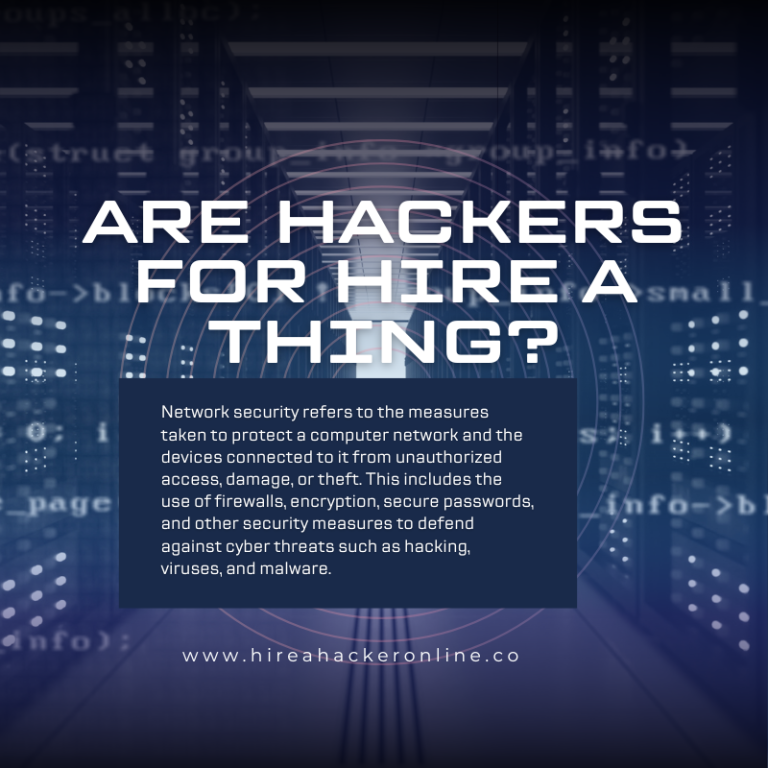Hiring hackers has become a topic of both intrigue and concern for business owners who face challenges on their cyber securities. Yes, hackers for hire are very much a reality that comes in two sides. These hackers operate across a broad spectrum, ranging from ethical hackers who protect systems to malicious hackers who exploit vulnerabilities for profit. Understanding the risks and the nature of these hackers is crucial for anyone who want to manage and improve their digital security.
The Dark Side: Malicious Hackers for Hire
The term “hackers for hire” often conjures images of shadowy figures lurking on the dark web, offering their services to the highest bidder. These malicious hackers are the true villains of the cyber world, offering a variety of illegal services that can have devastating consequences. One of the most common threats posed by hired hackers is the data breach. By infiltrating networks and systems, they can gain unauthorized access to sensitive information including but not limited to financial data, customer details, and trade secrets. This stolen data is often sold on the dark web, leading to significant financial and reputational damage for the victims.
Another popular attack method used by malicious hackers is the distributed denial of service DDOS attacks which you might have heard. By overwhelming a target’s network or website with excessive traffic, they can render it unusable, resulting in service disruptions and financial losses. These attacks can be particularly damaging for businesses running online.
These hackers also offer email hacking service, yes, they’re responsible for millions of hacked emails. Through phishing, social engineering, and malware deployment, hired hackers can gain access to personal and corporate email accounts. This not only compromises sensitive information but also paves the way for further attacks, such as identity theft or even financial fraud like scams or others.
How Hackers for Hire Operate
Malicious hackers for hire often advertise their services on the dark web where anonymity is preserved through encrypted communication and cryptocurrency transactions. Clients seeking their services can hire them to target specific individuals or organizations. The services range from infiltrating operating systems to bypassing security measures and obtaining unauthorized access to social media accounts.
The process usually begins with the hacker conducting a reconnaissance phase, where they gather information about the target. This might involve identifying vulnerabilities in the target’s systems, networks, or personal habits. Surprisingly, social engineering plays a significant role in this phase. By manipulating individuals into revealing confidential information, hackers can bypass technical security measures and efficiently gain direct access to their targets.
Once enough information has been gathered, the hired hacker launches their attack(s), which can take various forms. For example, a data breach might involve exploiting security flaws in the target’s software, while a DDoS attack would require the deployment of a botnet to flood the target’s network with traffic. Regardless of the method, the goal remains the same: to compromise the target and achieve the client’s objectives.
The Risks of Hiring Malicious Hackers
While the services of malicious hackers can be tempting for those looking to gain an unfair advantage or settle a score, the risks involved are significant. Engaging in these illegal activities can result in severe legal consequences, including fines and/or even imprisonment. Furthermore, hiring a hacker to breach someone else’s security can backfire. These individuals are often unpredictable and can turn against their clients easily, using the information they obtain for blackmail or other forms of exploitation.
Additionally, malicious hackers have ZERO loyalty to their clients. Once they have completed their task, they may expose their client’s involvement or even target them in the future. By choosing to work with these individuals, clients risk becoming victims of their own schemes.
The Light Side: Ethical Hackers
Not all hackers for hire operate with malicious intent. Ethical hackers, also known as “white-hat” hackers, use their skills to help businesses and individuals secure their systems. These professionals are often hired to conduct penetration testing and vulnerability assessments, with the goal of identifying and addressing security weaknesses before they can be exploited by malicious actors.
Unlike those black hat hackers, ethical hackers operate within the law and adhere to strict ethical guidelines. They work to protect sensitive information, prevent data breaches, and secure operating systems against attacks. By simulating potential threats, they enable organizations to strengthen their defenses and minimize the risk of falling victim to cybercrime.
What’s The Deal
Hackers for hire are indeed a reality, and they exist on both sides of the cybersecurity spectrum. On one hand, malicious hackers offer their services on the dark web, posing a significant threat to individuals and organizations by executing data breaches, DDoS attacks, and email hacking schemes. These individuals operate outside the law, seeking financial gain at the expense of others’ security and privacy.
On the other hand, ethical hackers offer a legitimate service, helping businesses identify vulnerabilities and protect their sensitive information. While the term “hacker” often carries a negative connotation, it’s important to distinguish between those who seek to harm (malicious/black hat hackers) and those who strive to protect (ethical hackers).
Verdict
In the end, hiring a hacker can be a double-edged-sword thing. While malicious hackers promise quick results through illegal means, you should be aware that the risks far outweigh the potential benefits. Hiring ethical hackers, however, can be a valuable investment in cybersecurity for your business system, providing peace of mind and a robust defence against the ongoing, developing potentials of cyber-attacks.




